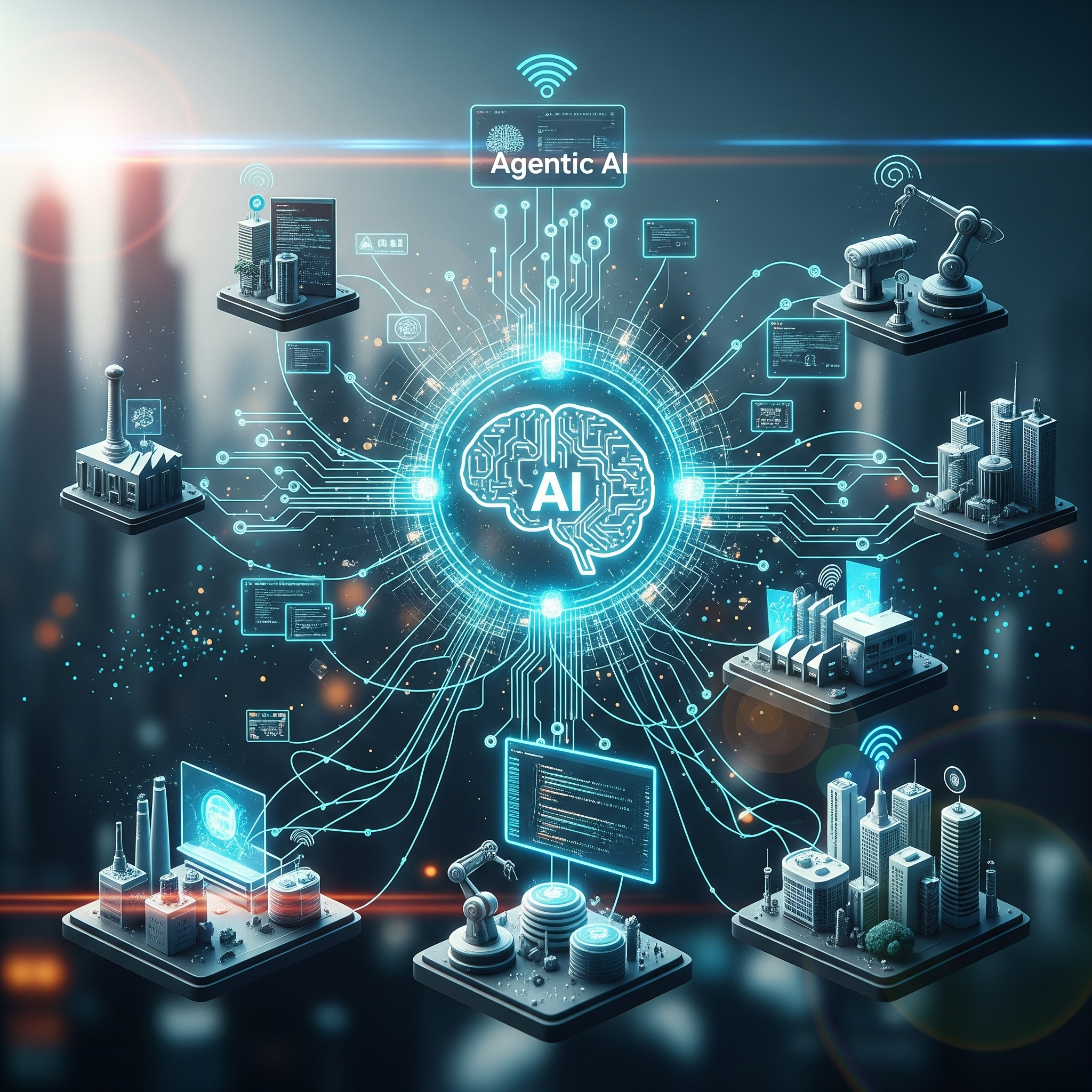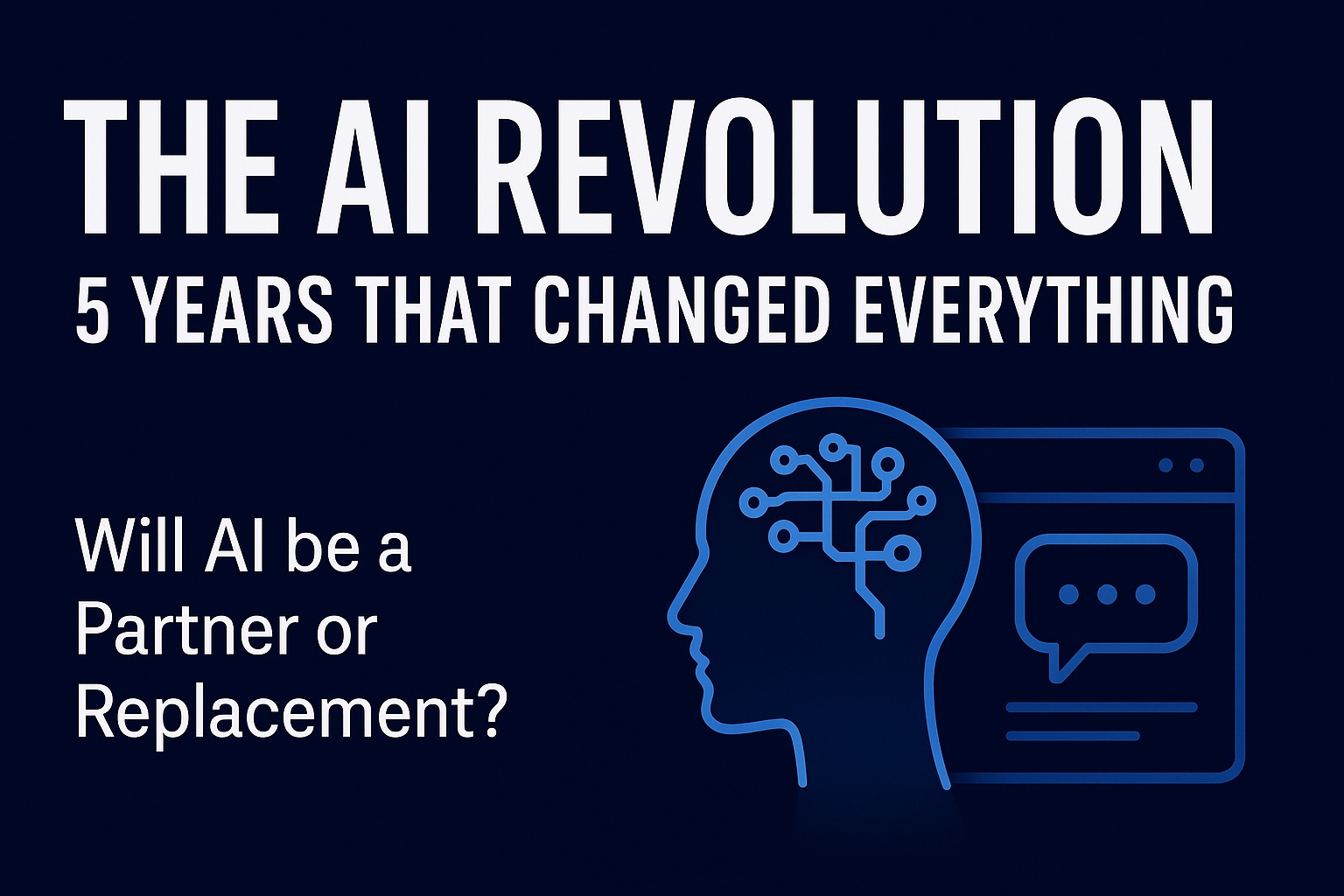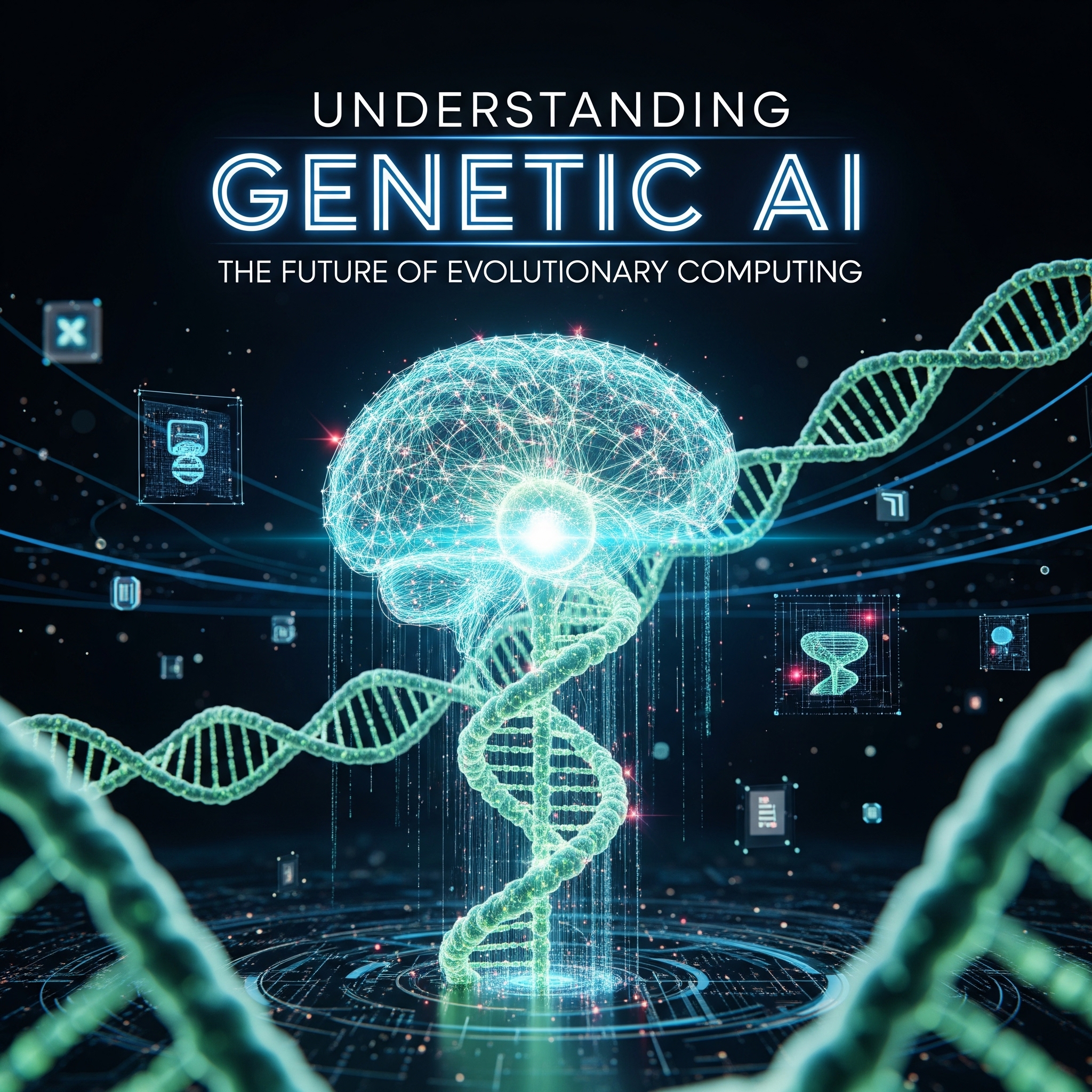
What is Agentic AI?
Agentic AI represents a paradigm shift in artificial intelligence, moving beyond simple task execution to systems that can act autonomously, make decisions, and pursue goals with minimal human intervention. Unlike traditional AI that responds to specific inputs, agentic AI systems possess agency—the ability to take initiative, plan actions, and adapt strategies to achieve desired outcomes.
Defining Characteristics of Agentic AI
🎯 Goal-Oriented
Can understand high-level objectives and work autonomously toward achieving them
🤖 Autonomous Decision Making
Makes independent choices without constant human guidance
🔄 Adaptive Learning
Continuously learns and improves from experience and feedback
🌐 Multi-Modal Interaction
Can interact with various systems, APIs, and environments
How Agentic AI is Transforming Software Development
1. Automated Code Generation and Optimization
Agentic AI systems are revolutionizing how software is created by generating entire codebases, optimizing existing code, and automatically fixing bugs. These systems can understand requirements in natural language and translate them into functional, efficient code across multiple programming languages.
Real-World Example: GitHub Copilot X
Advanced AI coding assistants now go beyond simple autocomplete, offering:
- Full feature implementation from high-level descriptions
- Automated testing and debugging
- Code refactoring and optimization suggestions
- Documentation generation
2. Intelligent DevOps and Infrastructure Management
Agentic AI is transforming DevOps by creating self-managing infrastructure that can predict issues, auto-scale resources, and optimize deployment pipelines without human intervention.
3. Autonomous Testing and Quality Assurance
AI agents are now capable of designing comprehensive test suites, executing tests across multiple environments, and even predicting potential failure points before they occur in production.
Industry Evolution Through Agentic AI
Software Development Lifecycle Transformation
Traditional Approach
- Manual requirement analysis
- Human-driven design and coding
- Manual testing and debugging
- Static deployment processes
- Reactive maintenance
Agentic AI Approach
- AI-powered requirement extraction and analysis
- Autonomous code generation and architecture design
- Intelligent, self-improving testing
- Dynamic, adaptive deployments
- Predictive maintenance and optimization
Key Benefits for the Software Industry
🚀 Accelerated Development Cycles
Agentic AI dramatically reduces time-to-market by automating repetitive tasks and enabling developers to focus on high-level problem-solving and innovation.
🎯 Enhanced Code Quality
AI agents can maintain coding standards, identify security vulnerabilities, and ensure best practices across large codebases consistently.
💰 Cost Optimization
By automating routine tasks and preventing bugs before they reach production, organizations can significantly reduce development and maintenance costs.
🔧 Democratized Development
Natural language interfaces allow non-technical stakeholders to contribute directly to the development process, breaking down traditional barriers.
Emerging Applications Across Industries
🏥 Healthcare
Autonomous diagnostic systems, drug discovery acceleration, and personalized treatment planning
🏦 Finance
Algorithmic trading, fraud detection, and automated compliance monitoring
🚚 Logistics
Supply chain optimization, autonomous vehicle coordination, and predictive maintenance
�� Education
Personalized learning paths, automated content creation, and intelligent tutoring systems
Challenges and Considerations
Technical Challenges
- Explainability: Understanding how AI agents make decisions
- Reliability: Ensuring consistent performance in critical applications
- Integration: Seamlessly connecting with existing systems and workflows
- Scalability: Managing computational resources as AI agents become more complex
Ethical and Social Implications
- Job Displacement: Balancing automation with employment opportunities
- Accountability: Determining responsibility for AI agent decisions
- Bias and Fairness: Preventing discriminatory outcomes in AI decision-making
- Privacy: Protecting sensitive data in autonomous systems
The Future Landscape
As agentic AI continues to evolve, we can expect to see even more sophisticated applications:
🧠 Multi-Agent Collaboration
Teams of specialized AI agents working together on complex projects
🔮 Predictive Development
AI systems that anticipate user needs and develop solutions proactively
🌍 Autonomous Software Ecosystems
Self-managing, self-improving software environments
"The future of software development isn't about replacing human creativity, but amplifying it through intelligent collaboration with AI agents that can handle the routine while humans focus on innovation and strategy."
Embracing the Agentic AI Revolution
The software industry stands at the threshold of a transformative era. Agentic AI is not just changing how we write code—it's revolutionizing how we think about problem-solving, creativity, and collaboration in technology. Organizations that embrace this shift and invest in agentic AI capabilities will find themselves at the forefront of innovation, delivering better products faster and more efficiently than ever before.
As we move forward, the key to success lies in understanding that agentic AI is not about replacement, but enhancement. By partnering with intelligent agents, developers and organizations can achieve levels of productivity and innovation that were previously unimaginable, ushering in a new golden age of software development.


Comments (1)
Nishit Tiwari Verified
Aug 01, 2025 at 6:56 PMgreat post